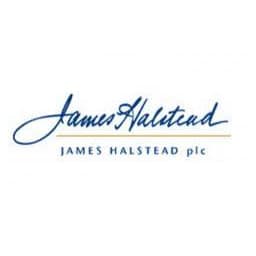Uncertainty and disruption – why the strong will get stronger
Businesses can take market share away from competitors with strong supply chain relationships.

![]() By David Beggs
By David Beggs
Sanford DeLand Asset Management
15 November 2021

The past eighteen months have been a period of remarkable disruption for businesses around the globe, with the impact of the pandemic still being felt acutely. Supply chain disruption, inflation, rising energy prices, and tight labour markets are all issues that have been well documented in the press.
We make no attempt to predict how these variables will play out as we subscribe to Warren Buffett’s assertion that it’s best to focus on things that are both knowable and important. For us the macro environment is important but not knowable.

Instead, we focus our attention on the fundamental attributes of businesses that should stand them in good stead irrespective of the economic environment. Indeed, strong businesses with the characteristics discussed below are likely to emerge from this period stronger than ever.
Regarding the prospect of higher levels of inflation, we take comfort from two sources. Firstly, businesses must have pricing power, whereby the prospect of passing on higher input costs to customers doesn’t cause management to have sleepless nights.
Some companies in this position have already increased prices and/or introduced shipping surcharges to recover cost increases. If input costs subsequently normalise at lower levels, then it will be interesting to see whether these price increases prove to be sticky, the implication being potentially higher margins for such businesses.
Secondly, businesses are capital light and do not require significant investments in tangible assets such as property, plant, and equipment to support unit sales volumes. The importance of this point is best demonstrated with a simplified example.
Consider two businesses with identical sales and profit margins, but different capital requirements. Business A requires £50m of investment in tangible assets to support £100m of sales, whereas business B requires £100m of investment in tangible assets to support £100m of sales. Demonstrably, one can see business A earns a superior return on assets, a sought-after quality for BPI investors.
Now consider the effect a hypothetical doubling of the price level would have on the two businesses. Both would need to double nominal sales to £200m just to keep up with inflation.
This could be achieved by selling the same number of units at double the earlier prices and assuming profit margins remain unchanged, profits would also double. However, to achieve this both would need to double their nominal investment in tangible assets.
Business A would only have to commit an additional £50m to finance the capital needs imposed by inflation, whereas business B would have a need for £100m of additional capital. Clearly business A is the more attractive proposition.
The current environment has also brought home the importance of experienced and proven management teams. Well managed businesses tend to be adaptable, customer centric and ahead of the curve when it comes to issues like supply chain disruption and rising energy prices.
![]() XP Power, a leading provider of power products, began increasing safety stocks of critical product components back in Q3 of 2020 to help ensure it could meet customer demand.
XP Power, a leading provider of power products, began increasing safety stocks of critical product components back in Q3 of 2020 to help ensure it could meet customer demand.
Having long and close relationships with suppliers is also key; it is no coincidence that companies that treat their suppliers well find themselves at the front of the queue when there are shortages.

This has helped James Halstead, the flooring manufacturer, to keep its production lines fed and take market share away from weaker competitors unable to ensure continuity of supply.
With such dire headlines it is easy to become overly fixated on the short-term.
However, as long-term investors we see this period as an opportunity for some businesses to strengthen customer relationships and take market share away from the competition. Put simply; the strong should get stronger.
David Beggs, Investment Analyst, Sanford DeLand Asset Management. The views expressed above are his own and should not be taken as investment advice.
At Ethical Offshore Investments, we only invest in regulated investments and will always use the lowest charging version of the fund available on the relevant platform. This ensures that more of the investment growth stays in the investors pocket.
If you would like to learn more about the wide range of quality funds that are available to investors, click the More Information button below and we will contact you personally.
Sustainable Investing – Ethical Business Standards
